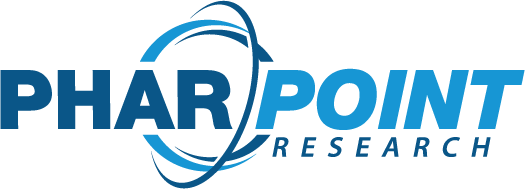
With the COVID-19 pandemic having pushed employees out of their offices and into their homes, the future of remote work and potential negative side effects of working from home has been a hot topic.

Are you a professional in the CRO industry considering making a move to a company that can adequately support either hybrid or full-time remote employees, even after the pandemic?
In this article, we explore some of the common concerns that come with a partially remote workforce, including the effectiveness and productivity of remote workers in the drug development and CRO industry, along with how to address the all-too-common side effects of burnout and employee connection.
Remote Work in the CRO Industry
A recent impact report from Tufts Center for the Study of Drug Development has provided insight into the productivity and effects of clinical teams gone virtual due to the COVID-19 pandemic.
The report found that 71% of respondents reported they can “very effectively” perform their job remotely.
Additionally, over 75% of all respondents stated their productivity has remained unchanged or increased since the beginning of the pandemic.
Tufts CSDD’s survey found that over 85% of clinical teams hope to continue working from home after the health crisis is over. This can be contrasted against research by Pew Research Center, which found the overall percent of employed adults who hope to work remote after the coronavirus outbreak to be around 54% – substantially lower.
An interesting note is the nearly 10% gap between respondents who stated they were less productive at home yet remain interested in continuing remote work.
This gap is important for companies to acknowledge: management must identify workers who fall into this gap and support them accordingly. What is causing their decrease in productivity? Would a 1-day remote/4 day in-office week be more effective for these employees? How can their managers support them in a way that lets them grow as an effective worker, regardless of their location?
The most-reported negative effects associated with remote work were burnout, which was mentioned by over half of all surveyed, along with deteriorated connections with colleagues. These effects, although negative, can improve through better organizational management and flexibility.
Remote CRO Positions at PharPoint Research
At PharPoint, even prior to the COVID-mandated work from home shift, our team had remote protocol in place and a flexible environment. At any one time, we typically had remote or partially remote CRO positions available.
How does our team tackle the negative “side effects” of remote work – like burnout and deteriorated connections with colleagues?
The first step is to fully align our team across our mission, vision, and values.
Since the beginning, PharPoint’s founding team has united through a passion to educate and give back to the industry what we have been blessed to learn – with an unrelenting support of both our clients and the growth and development of future industry leaders.
From this vision, the PharPoint mission – to create an alternative to rigid, unimaginative, quality-compromised clinical research organizations – was born. This mission along with four core values were put in place to guide interactions with both colleagues and clients.
- Honesty: Honest exchanges create trust. We are honest with our staff and colleagues, giving accurate feedback regarding performance.
- Transparency: Maintaining transparency is key to a better, more effective relationship.
- Superior Customer Service: Better customer service means responses that are timely and delivered with care, and the assurance that your colleagues have the support they need to succeed, no matter where they are.
- Excellent Quality: Always without short cuts.
In alignment with our mission, vision, and values, and to create a better working culture (regardless of staff location), we support our teams with a range of initiatives, programs, and company benefits, including:
- A culture encouraging management that cares by building meaningful relationships with employees
- Offering a mix of remote and in-house work options, so employees are able to enjoy certain days working remote while also spending time in office to feel more connected to colleagues and bond among team members
- Encouraging employee recognition – and being openly grateful for what your coworkers and direct reports contribute
- Encouraging and embracing a growing company culture that’s inclusive of both remote and on-campus employees, and continuously monitoring and remediating as needed to make sure that regardless of location, employees feel both supported and involved.
- Use of technology (like Microsoft Teams and other communication & collaboration platforms) to keep teams interconnected, no matter their location
- Encouraging team engagement and collaboration – whether it’s through virtual/in-person lunches, coffee chats, or department-wide get togethers
- Ample PTO and holidays off (including the time off between Christmas and the New Year)
- Flex hours
- Offering an employee assistance program (EAP), which can confidentially assist with things like mental health issues, health and caregiving, family services, and counseling referrals, among other services.
Looking for a remote-friendly office?
PharPoint is an award-winning contract research organization that’s always looking for incredible talent to join our growing team.
To explore our openings, including both in-office and remote positions, visit our careers portal.
RELATED RESOURCES



